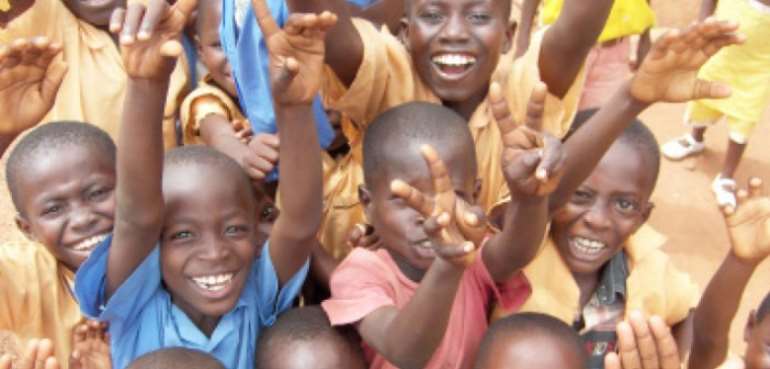The plight of Nigerian children – The Sun

Children are being celebrated in Nigeria today in observance of the annual Children's Day. This is a day specifically set aside by the United Nations (UN) in 1954 to reflect on children, their aspirations, dreams, problems and to make the world a happier and safer place for them. It is also a day to promote togetherness and acknowledge their rights. The UN General Assembly had advised governments in every country across the globe to choose a date to celebrate children. Nigeria subsequently chose May 27 of every year for this important celebration. Expectedly, some of the nation's 40 million or so children will take part in parades, carnivals and other special activities today, to mark their special day. Our leaders at all levels of governance will give flowery speeches, extolling the significance of the day and their readiness to improve the lot of young ones in the country. So much will be said about the Rights of the Child, a declaration that was adopted by the UN in 1959 which encapsulates the basic rights of children to enable them attain their aspirations to good education, health, welfare package and decent living condition.It is, therefore, a platform for deep reflections on the plight of Nigerian children. Indisputably, children are the greatest treasures of life. They are the candlelight of the future and should, therefore, be cherished and nurtured to be able to play their rightful role in society. This celebration should, therefore, be a perfect occasion to take stock of the rights of the children in Nigeria and strive to restore the ones that they have been deprived of.Sadly, these children's rights are observed more in the breach, while the promises made by our leaders on their problems over the years have remained mere platitudes.Equally sad is the fact that this year's event has come at a very troubling time for Nigerian children and the country at large. So many children, now estimated at 10 million, are out of school either because their parents cannot afford tuition fees and other education tools, or they just do not appreciate the value of education. Most heartrending, however, is the abduction of hundreds of young females from the Government Secondary, School, Chibok, in Borno State, without any clue yet on how to rescue them, six weeks after they were seized by insurgents.Schools in many parts of the country are no longer safe for children. Government appears incapable of protecting children. Nigeria, apparently, is living in denial of its responsibility to children.In Nigeria today, many children are deprived of the basic things of life. Many are malnourished and have been forced to become breadwinners for their families. Facilities are in short supply to enable the Nigerian children realise their aspirations. The situation is very bad for children from poor homes who sometimes become items for trafficking. Some children are victims of abuse. There is also high infant mortality and slow progress towards meeting the Millennium Development Goals MDGs) relating to children.In the troubled parts of northern Nigeria, children are subjected to the horrors of terrorism. Some are forced to work as child soldiers and face all sorts of abuse.Even in the relatively safer parts of the country, children suffer neglect. Many parents have become too busy to devote quality time to their children, making them vulnerable to all kinds of vices. Discipline, a vital thread that holds society together, is fast eroding. There is easy recourse to unhealthy practices such as examination malpractice and internet scam, all of which leave much to worry about for Nigeria's next generation of leaders. Indiscipline flows from the top at a time that our children need role models to meet their aspirations. The Nigerian environment is not conducive for children.Children's Day celebration should, henceforth, go beyond the annual fanfare that it is now. Let it focus more on how to chart a realistic plan for the development of Nigerian children. This requires concerted efforts of all stakeholders, including governments, parents, schools, religious institutions and non-governmental organisations.While we urge governments at all levels to give priority attention to policies that will promote the general well-being of young Nigerians, parents should equally pay more attention to the welfare of their children, and inculcate in them values that will make them treasures and a real hope for a better Nigeria.
